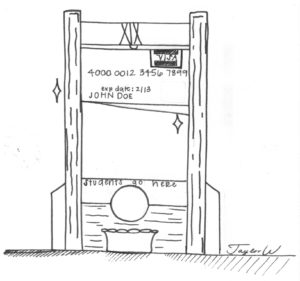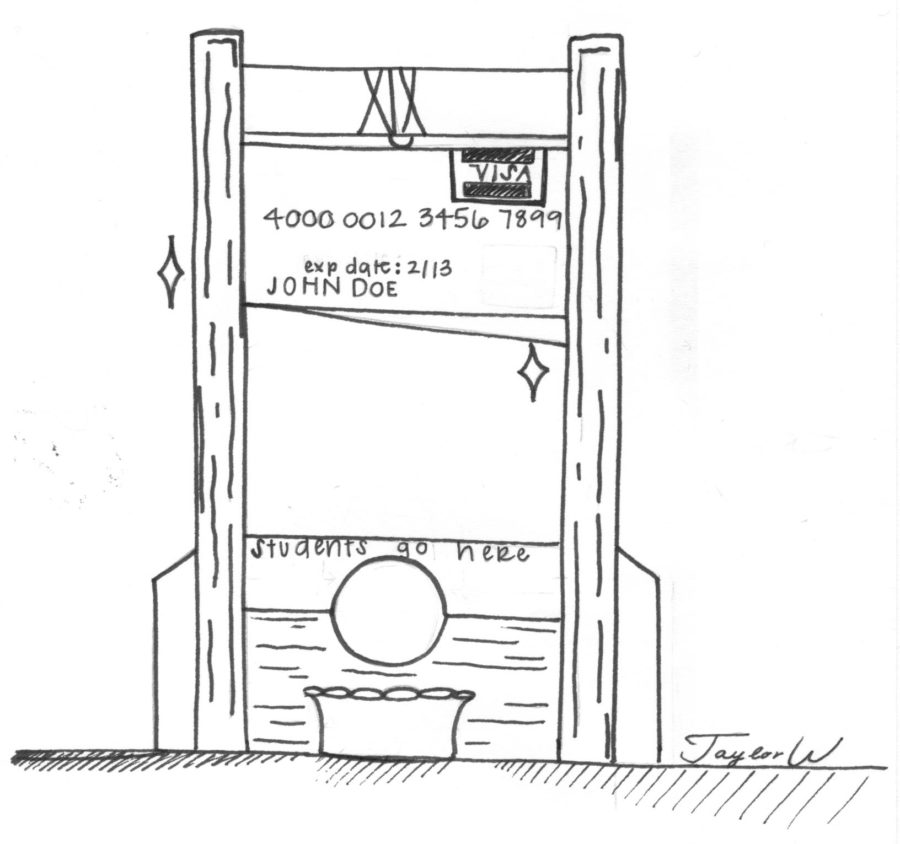 In the Orono School District it is not an uncommon occurrence for a student to find themselves in possession of their parent’s credit card. Whether it’s used to buy a caramel cooler at Caribou, a pizza at Domino’s, or gasoline at the local Super America, those little plastic cards can come in handy.
In the Orono School District it is not an uncommon occurrence for a student to find themselves in possession of their parent’s credit card. Whether it’s used to buy a caramel cooler at Caribou, a pizza at Domino’s, or gasoline at the local Super America, those little plastic cards can come in handy.
But the next time you whip out that tantalizing credit card, consider that there is actually more to it than what your untrained eye can see. The temptation to spend, hidden rates and fees, debt and an insufficient knowledge of how credit cards work can easily get the better of you, and that is something you and your wallet are going to want to avoid.
What many students are not aware of when they receive their first credit card is the fine print associated with the activation. The APR, or Annual Percentage Rate helps evaluate the cost of a loan in terms of percentage. Be aware that certain credit card companies have hidden APR fees and that the company is not liable to alert you if they change over time. The best credit cards have no APR, and quite literally, you get much more bang for your buck when you’re not spending extra money on something that isn’t necessary.
Exercise caution and constant vigilance when handling interest rates as well. Interest is the fee paid for borrowing money from the bank. This is the price a person pays for the ability to spend money today that would otherwise take time to accumulate. Interest constantly fluctuates based upon your spending habits, payment history and credit score. Rather than pay the minimum interest payment after a month of spending, try paying off as much as your monthly budget allows. This way, less money is tacked on to the amount of your last transaction.
Now this is not to say that credit cards are infinitely evil. In fact, they can be quite convenient and sometimes necessary in everyday transactions.
Carrying a credit card with you is definitely safer then a wad of bills and change. Theft is easily countered as well, as you can choose to cancel your card in the event that it disappears out of your wallet.
Another benefit that credit cards offer us is a credit score. A credit score is a three digit number between 350-850 that evaluates your ‘credit worthiness.’ By obtaining a credit card and making smart decisions; i.e. paying off your balance on time and developing rapport with your credit company, your credit score will consistently rise. The higher your credit score, the more likely it will be that banks will approve your loans in the future.
In the simplest terms, money is a constant factor in our everyday life, a substance that is hard to distance yourself from. In whatever form, (credit cards in particular) currency is a dangerous force to be reckoned with. There are still many things we have yet to understand and discover within the financial world, and without the proper knowledge, we may very well be susceptible to risks that are rather daunting in nature.
Therefore, the next time you find yourself in the possession of a Visa or MasterCard, make sure that you understand the repercussions and hidden dangers of that one simple swipe through the card processor. The facts are available everywhere: your parents, financial advisers at your local bank, and in your school with the Get Smart Take Charge financial literacy group.
There is a wealth of knowledge at your finger tips, and you only have to reach out and take it. So ‘get smart and take charge’ of your credit knowledge, and remain financially safe, rather than sorry.
Taylor Werdel is the Editorials Editor of The Spartan Speaks.

















































